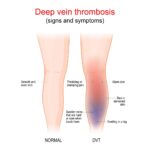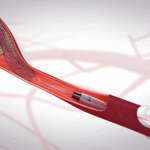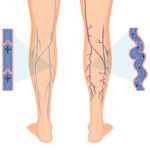Best Vascular Surgeons in Houston: How to Choose the Right Specialist
Introduction:
Finding the right Vascular Surgeon in Houston is a crucial decision for your health, especially if you are dealing with complex conditions like varicose veins, peripheral arterial disease (PAD), or aortic aneurysms. Texas, known for its advanced medical facilities, is home to many talented vascular surgeons. However, not all vascular surgeons are created equal, and choosing the right specialist can make a significant difference in your treatment outcome.
In this post, we’ll guide you on how to choose the best vascular surgeon in Houston, ensuring that you receive high-quality care tailored to your needs.
1. Understand the Role of a Vascular Surgeon
Before selecting a vascular surgeon, it’s essential to understand what they do. Vascular surgeons specialize in the diagnosis, treatment, and management of vascular (blood vessel) diseases. These conditions can affect both arteries and veins, including diseases like varicose veins, PAD, carotid artery stenosis, and more.
A skilled vascular surgeon can provide both non-invasive treatments and surgical procedures, depending on the severity of the condition. Their expertise lies in advanced techniques such as endovenous laser ablation, endovascular surgery, and minimally invasive surgeries.
2. Check for Board Certification
The first and most important step when searching for a vascular surgeon is to ensure they are board-certified. Board certification signifies that the surgeon has completed extensive training and education in vascular surgery and has passed rigorous exams to demonstrate their expertise.
In Houston, look for surgeons who are certified by the American Board of Surgery (ABS) or the American Board of Vascular Surgery (ABVS). These certifications are widely recognized and ensure that the surgeon meets high standards of care.
3. Review the Surgeon’s Experience and Specialization
While all vascular surgeons are trained in general surgery, many specialize in specific areas of vascular care. For instance, some may focus on endovenous laser ablation for varicose veins, while others may specialize in treating PAD or performing aortic aneurysm repairs.
When choosing a vascular surgeon, consider their experience in treating the specific condition you have. A surgeon who specializes in varicose vein treatments, for example, will be more likely to offer advanced treatment options and have a higher success rate than one with less experience in that field.
4. Look for Patient Reviews and Testimonials
Patient reviews are a valuable resource when researching a vascular surgeon. Websites like Healthgrades, Yelp, and Google Reviews provide patient feedback on their experiences with a particular doctor. Look for consistent positive reviews, especially those highlighting the surgeon’s professionalism, bedside manner, and successful outcomes.
You can also ask the surgeon’s office for patient testimonials, as many clinics will be happy to share success stories from patients with similar conditions.
5. Evaluate the Surgeon’s Approach to Treatment
A great vascular surgeon should take a personalized approach to care. During your consultation, the surgeon should take the time to understand your medical history, listen to your concerns, and explain all treatment options available. A good surgeon will ensure you are well-informed about the potential risks and benefits of each treatment and will tailor the plan to suit your specific needs.
For example, Dr. Neil Desai, a leading vascular surgeon in Houston, TX, is known for his patient-centered approach. He specializes in cutting-edge treatments for both arterial and venous diseases and works closely with patients to determine the best plan for their individual needs.
6. Consider the Clinic’s Facilities and Technology
The quality of a vascular surgeon’s clinic can also impact your experience. A reputable vascular surgeon will practice in a state-of-the-art facility equipped with advanced diagnostic tools and surgical technologies. This ensures that they can provide the most effective treatments and perform surgeries with precision and care.
Additionally, make sure that the clinic offers a comfortable, supportive environment for patients. This can significantly improve your overall experience, from your initial consultation to your recovery.
7. Check for Insurance and Payment Options
Medical treatments, especially those involving surgery, can be expensive. It’s essential to check if the vascular surgeon accepts your insurance and offers flexible payment options. Many practices also provide financing options to make treatments more affordable.
Conclusion: Finding the Best Vascular Surgeon in Houston
Choosing the right vascular surgeon in Houston requires careful consideration of several factors, including certification, experience, specialization, patient reviews, and the clinic’s facilities. Take the time to research your options and don’t hesitate to schedule a consultation to ensure that the surgeon you choose fits your needs.
Dr. Neil Desai, a board-certified vascular surgeon in Houston, is known for providing personalized, advanced treatments for various vascular conditions. With years of expertise and a patient-centered approach, Dr. Desai is a trusted choice for Texans seeking top-quality vascular care.
Recent Posts
-

10 Daily Habits That Help Prevent Varicose Veins Naturally
February 23, 2026 -

7 Tips for Healthy Legs During Long-Distance Travel
February 9, 2026 -

How to Reduce Leg Swelling (Edema) Fast at Home: 7 Proven Methods
February 2, 2026 -

10 Anti-Inflammatory Foods That Protect Your Blood Vessels
January 21, 2026 -

5 Signs of Poor Circulation and How to Fix It
January 15, 2026 -

15 Yoga Poses to Improve Blood Circulation in Your Legs
January 9, 2026 -

10 Things You Can Do Today for a Healthier Heart and Better Flow
January 7, 2026 -

7 Effective Exercises for Chronic Venous Insufficiency
December 23, 2025 -

10 Superfoods That Improve Your Blood Circulation Naturally
December 23, 2025 -

Blood Clot in Leg Treatment in Houston: Expert DVT Care 2026
December 19, 2025 -

How Laser Ablation Can Help with Chronic Pain: Houston’s Leading Solutions
December 8, 2025 -

How Diabetes Affects Your Vascular Health
December 3, 2025 -

What Causes Varicose Veins in Your Legs?
December 3, 2025 -

Top 5 Signs You Need to Consult the Best Doctor for Vascular Surgery
December 3, 2025 -

Top 10 Vascular Surgeons in Texas: A Comprehensive Guide
December 3, 2025 -

5 Key Factors to Consider When Choosing the Best Vein Specialist
November 3, 2025 -

The Causes, Symptoms, and Treatments of Peripheral Venous Disease
November 3, 2025 -

Expert Limb Preservation Services in Houston Hospitals
November 3, 2025 -

Top 5 Vein Specialists in Houston: Expert Guide 2026
November 3, 2025 -

What Should I Expect During Pulmonary Embolism Treatment in 2026
September 30, 2025 -

Top 10 Vascular Surgeons in Texas | Best Vascular Specialists 2025
September 12, 2025 -

Choosing Minimally Invasive Vascular Surgery: A Comprehensive Guide
September 11, 2025 -

Top 5 Houston Vascular Surgeons for Effective Vein Care
August 26, 2025 -

Top 5 Signs You Need to See a Vascular Surgeon in Houston
August 19, 2025 -

How to Choose the Best Vascular Surgeon in Houston: A Complete Guide
August 18, 2025 -

Understanding Vascular Health: When to See a Specialist Like Dr. Desai
July 28, 2025 -

Why Do I Need to See a Vascular Surgeon for PAD?
July 21, 2025 -

Top 5 Signs It’s Time for Varicose Vein Treatment
July 7, 2025 -

How Smoking Affects Your Vascular Health? Discover the Risks of AAA, PAD, and Stroke
July 4, 2025 -

Preventing Strokes with TCAR: Revolutionary Treatment Now Available in Cypress
June 23, 2025 -

Minimally Invasive Vascular Surgery: Advanced Treatments for Complex Conditions
June 16, 2025 -

Peripheral Arterial Disease (PAD): What You Need to Know About Symptoms and Treatment
June 10, 2025 -

How Endovenous Laser Ablation is Changing Varicose Vein Treatment in Cypress
June 5, 2025 -

Best Vascular Surgeons in Houston: How to Choose the Right Specialist
June 5, 2025 -

Houston’s Best Varicose Vein Treatments: Expert Advice for Vascular Health
March 10, 2025 -

Meet Dr. Neil Desai: Cypress’s Trusted Vascular Surgery Expert
March 10, 2025 -

Top Solutions for Varicose Veins: Finding the Best Treatment in Houston
March 10, 2025
Contact Us
Important Links
Practice Location
- © Dr. Neil Desai, Vascular Surgeon Cypress, Houston, TX

